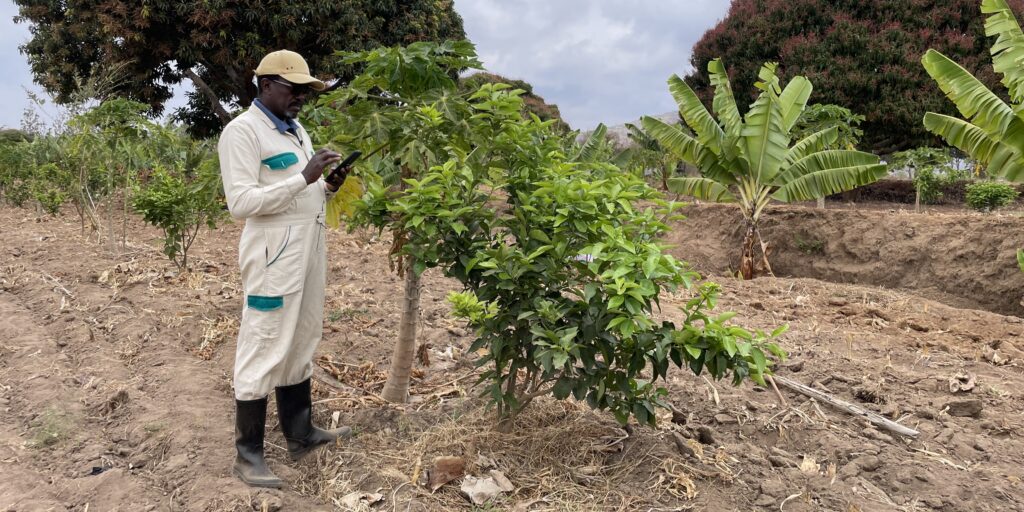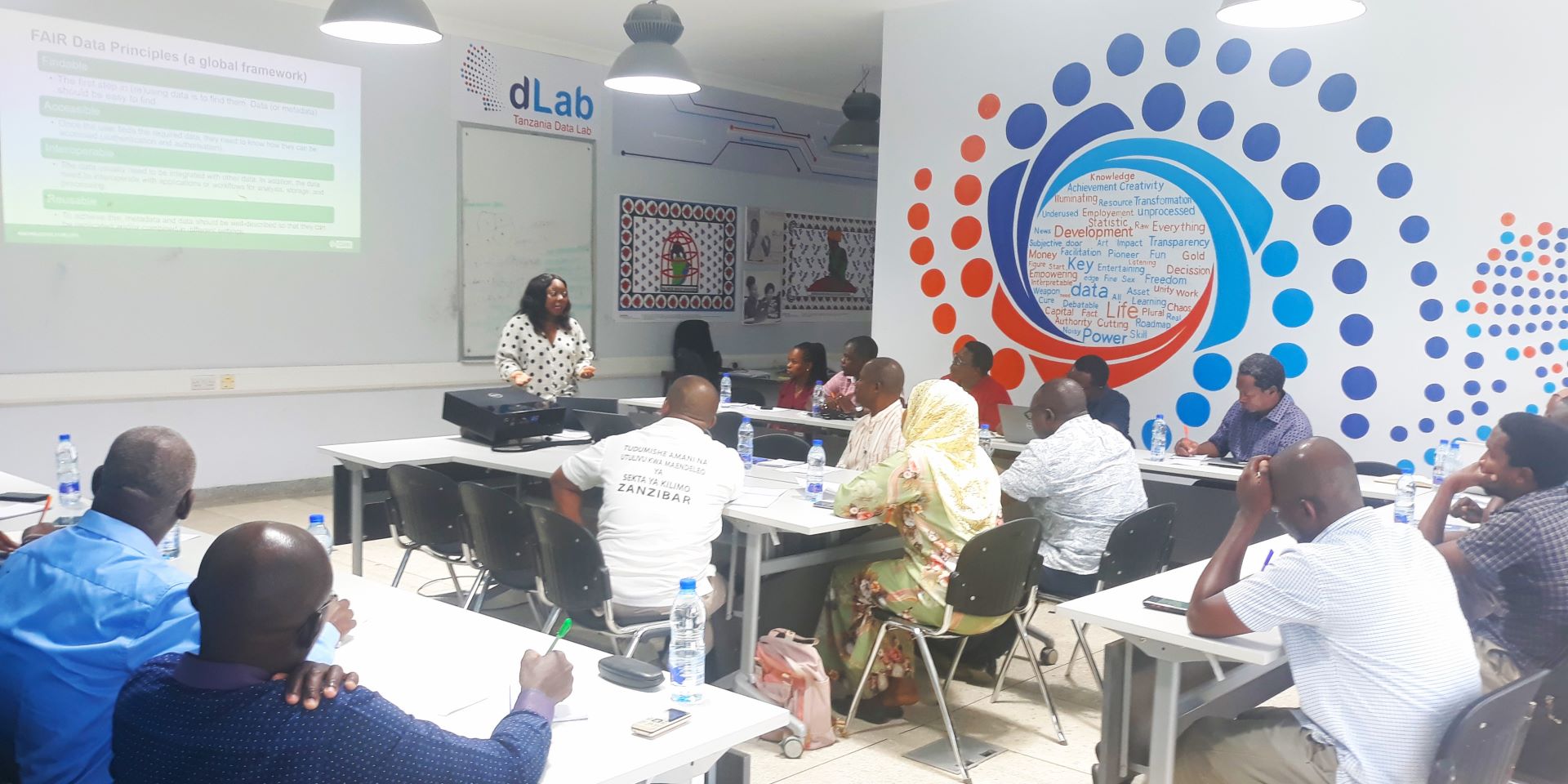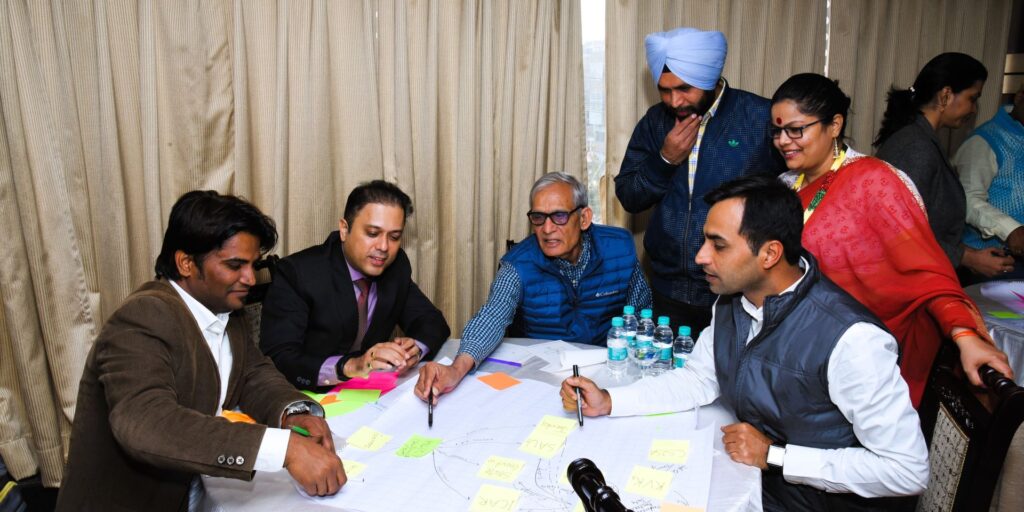
Smallholder farmers often have limited access to agricultural information and advisory services. In response to this challenge, stakeholders recognize digital tools and data approaches for delivering practical solutions to farmers. As a result, donors are increasingly funding technology-driven initiatives.
The FAIR principles – Findable, Accessible, Interoperable, and Reusable – are a widely adopted approach to make agricultural data more usable, shareable, and impactful across systems and investments.
The Gates Foundation funded CABI’s ‘Enabling FAIR data sharing and responsible data use’ project, which worked to promote responsible FAIR data sharing and improved data management practices. The project focused on increasing the capacity and capability of its Program Officers, grantees and national systems with tools to maximize the potential of data.
From the outset, the project team emphasized that support to achieve effective data management must be practical and accessible. Teams should embed tools into grant-making processes and real-world contexts. Therefore, this thinking led the team to turn the theory into the practical tools of the FAIR Process Framework.
Implementing FAIR data in agriculture
The CABI team launched the FAIR Process Framework at the Gates Foundation headquarters in Seattle in 2024, marking the culmination of three years of project work. The framework outlines a six-step process that offers manageable and practical activities to support FAIR data strategies.
Arun Jadhav, Senior Data Architect, CABI, highlighted the framework’s flexible and inclusive design. He said: “The FAIR Process Framework recognizes that there is no one-size-fits-all approach to data governance – every project, partner, and context is different. The Framework provides guiding principles and practical tools but leaves space for local realities, priorities, and capacities to shape how FAIR is applied.”
“By treating data as asset, we can enable strategic decision-making and power faster and smarter progress to tackle problems. The framework helps improve data governance, management, and strategy across the agricultural development landscape.”
CGIAR Recipes, co-developed by CABI and the Gates Foundation, is one example of building capacity to achieve FAIR data outcomes. Co-developed by CABI and the Gates Foundation, it includes the FAIR Potential Assessment Tool, helping Program Officers and grantees to assess proposals early. This allows them to set clear goals and strengthen data practices during the investment, insights which feed into the Data Management and Access Plan (DMAP) – a living document that captures and refines data goals throughout the investment.
CABI plans to pilot these resources with a range of CGIAR projects and explore how to apply them internally at the organization to further strengthen its data practices.
Human-first approach
CABI’s approach to FAIR and responsible data sharing goes beyond technical considerations. An integral part of the FAIR Process Framework is its human-centred design and applicability to agricultural projects and real investments.
As Henry Mibei, Manager, Digital Development, Africa, explained: “To successfully implement FAIR processes, we must adopt a people-first approach – not a technology-first one. We focused on collating impactful case studies to provide evidence of the benefits of adopting good data practices in investments.”
In Malawi, CABI engaged with partners to enhance the Malawi Digital Plant Health Service (MaDiPHS) by conducting a series of interviews to learn from the successes and challenges of FAIR data sharing in practice and offer recommendations on improving data management and sharing in the country for the sustainability of the project. The initiative aims to establish a digital service for managing pests and diseases that will benefit over 100,000 farmers.
CABI successfully applied FAIR data sharing practices, improving access to data and information resources and facilitating the exchange of data. This resulted with positive feedback from partners in Malawi.
Angel Li, Regional Monitoring, Evaluation and Learning Coordinator, said: “Resources of the FAIR Process Framework have built trust and enhanced collaboration among partners, making data sharing ever easier and sustainable for future reuse.”
Putting FAIR Data into practice in agriculture

The benefits of FAIR and responsible data sharing extend beyond Malawi. Soil data holds great value, but fragmented and inaccessible datasets often hinder collaboration. However, by embedding FAIR principles, the Soil Information Systems (SIS) toolkit supports smarter decision-making in farming, sustainability, and policy planning.
Zambia is advancing national SIS initiatives through increased cooperation to address data-sharing gaps. Similarly, Ghana has now committed to building a national SIS based on CABI’s model, demonstrating the practical value of FAIR data sharing.
Furthermore, in Ethiopia, CABI was invited to support the government in shaping its digital agriculture strategy. After conducting in-country interviews and assessed data policies, CABI provided tailored recommendations for consideration in the country’s Digital Agriculture Roadmap.
CABI is now preparing a more detailed report and submitted the findings, analysis and recommendations. This will be submitted to the Gates Foundation to aid its strategy and planning for investments in digital agriculture.
These collaborations highlight how FAIR and responsible data practices can drive real-world impact across sectors, making data more useful and effective in tackling complex challenges.
Why FAIR data in agriculture matters

CABI recognizes the potential value of FAIR and responsible data, not just to the Gates Foundation but through adoption by its diverse ecosystem of grantees and in-country partners.
The FAIR Process Framework helps improve how stakeholders manage agricultural data and lays a foundation for longer-term transformation. By promoting collaboration, innovation and responsible practices, it enhances how data is shared and managed.
In turn, this maximizes the impact of donor-funded projects worldwide and contributes to sustainable development outcomes such as improved food security.
Martin Parr, Director, Data Policy and Practice, said: One of our key learnings has been to be flexible to meet the needs of the people we work with. That means adapting and being responsive to local circumstances instead of a one-size-fits-all approach.”
Individuals across CABI’s networks are adopting good data access practices. Further, equipping stakeholders with the tools and mindset for responsible data use can future-proof agricultural development. However, the timing in a project cycle of when FAIR data is introduced is important.
Martin Parr continued: “The earlier you plan for FAIR and responsible data, the higher the value, and lower the cost. Where the data is, and how we can use it to inform future research and decision-making, are among the most important questions for sustainable development going forward.”
Ultimately, CABI aims to enable FAIR practices by creating supportive environments. This helps build greater trust and more confidence in investments that are built using a robust data infrastructure. These outcomes have potential long-lasting benefits.
More information
Main image: Farmer using a tablet in a field (credit: CABI)
Useful resources
| Enabling FAIR data sharing and responsible data use – CABI project page |
| FAIR Process Framework |
| Soil Information Systems (SIS) Framework |
| FAIR Journal |
Further reading
Related News & Blogs
Six steps to implementing FAIR and responsible data practices
The FAIR Process Framework was developed by CABI and commissioned by the Gates Foundation to guide organizations toward effective data management. Boma Beddie-Memberr, Project Manager, Data Policy & Practice at CABI, outlines the six steps to imple…
17 January 2025





